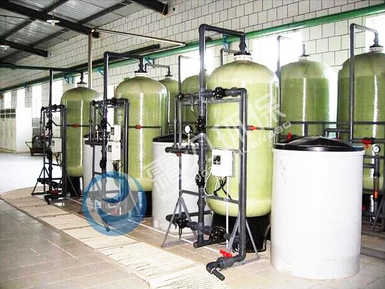
What are the different types of water treatment systems available for home use?
Water treatment systems are an essential part of our daily lives, especially when it comes to keeping our homes healthy and well-maintained. There are several different types of water treatment systems available for home use, each with its own benefits and drawbacks. In this article, we'll explore the most common types of water treatment systems and their features.
1. Reverse Osmosis Systems
Reverse osmosis (RO) systems are a type of water treatment system that removes all contaminants from water using a semi-permeable membrane. The membrane filters out impurities such as heavy metals, pesticides, and chemicals, leaving behind pure water. RO systems are commonly used in homes and are known for their effectiveness in producing high-quality water.
2. Activated Carbon Filtration Systems
Activated carbon filtration systems use activated carbon to remove chlorine, bacteria, and other organic compounds from water. They are known for their effectiveness in removing unpleasant odors and tastes from water. Carbon Filtration systems are easy to install, maintain, and are one of the most affordable water treatment solutions.
3. Ultraviolet (UV) Water Treatment Systems
Ultraviolet (UV) water treatment systems use UV energy to destroy microorganisms in water. These systems are effective against bacteria, viruses, and other harmful contaminants. UV systems are becoming increasingly popular for home use due to their affordability, low maintenance needs, and chemical-free disinfection process.
4. Water Softening Systems
Water softening systems are designed to remove calcium and magnesium ions from water to prevent limescale buildup. These systems use ion-exchange technology to exchange these hard minerals with sodium ions, which makes water soft. Water softeners help to prolong the lifespan of appliances such as the water heater, reduce energy bills, and improve the quality of water in the home.
5. Distillation Systems
Distillation systems work by boiling water and then collecting the steam as it condenses. This process removes impurities, such as toxins, chemicals, and minerals, from water. While distillation systems are effective at removing contaminants, they are not ideal for home use due to their high energy consumption and low water production rate.
When it comes to choosing a water treatment system for your home, the best solution is to identify the contaminants present in your water and choose a system that best addresses these issues. With the wide variety of systems available, there is a water treatment solution that can fit any home's unique needs. Whether you choose an RO system, activated carbon filtration, UV water treatment, or one of the other numerous options, it is essential to have pure, clean water for optimal health and wellbeing.

